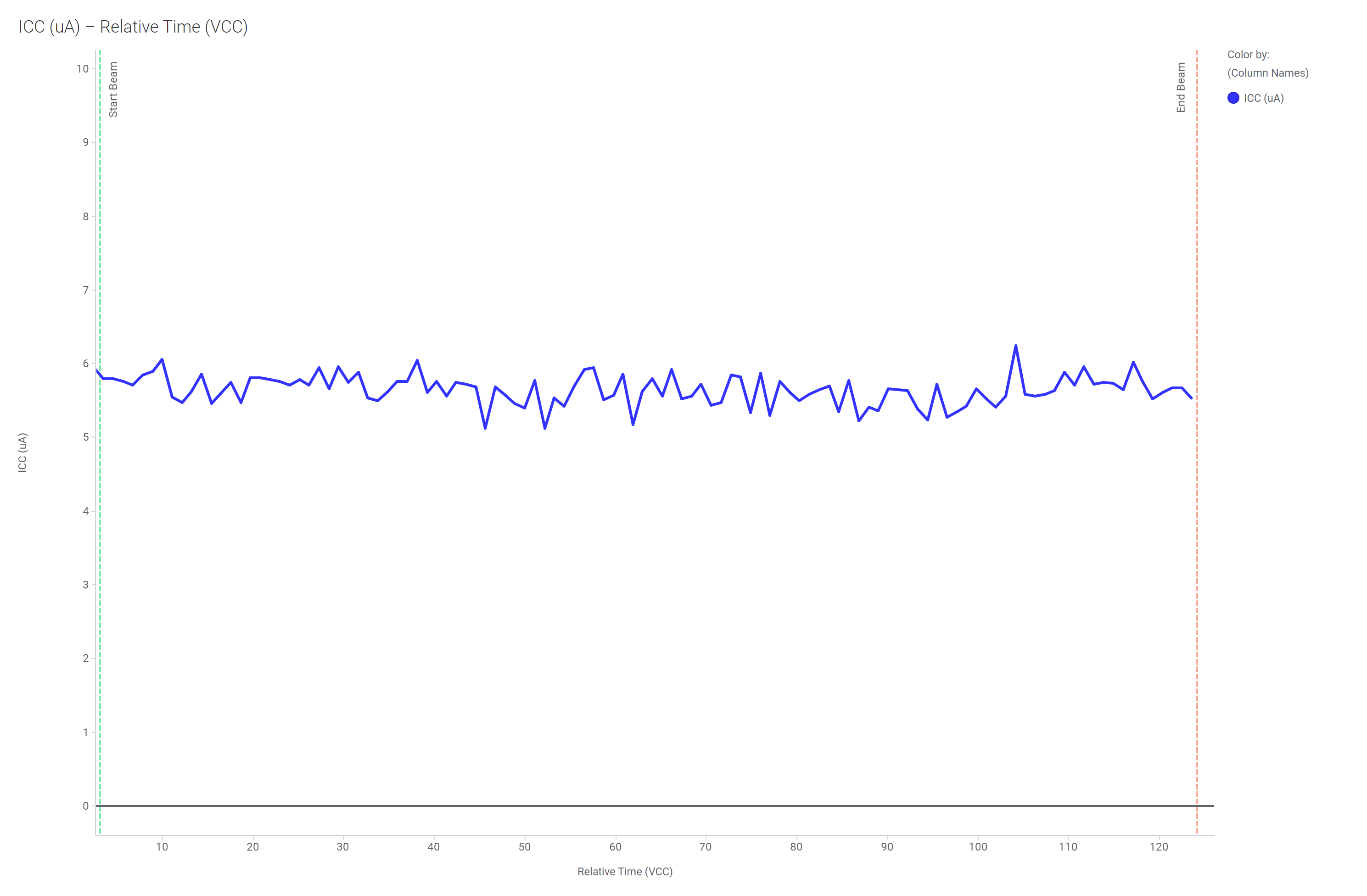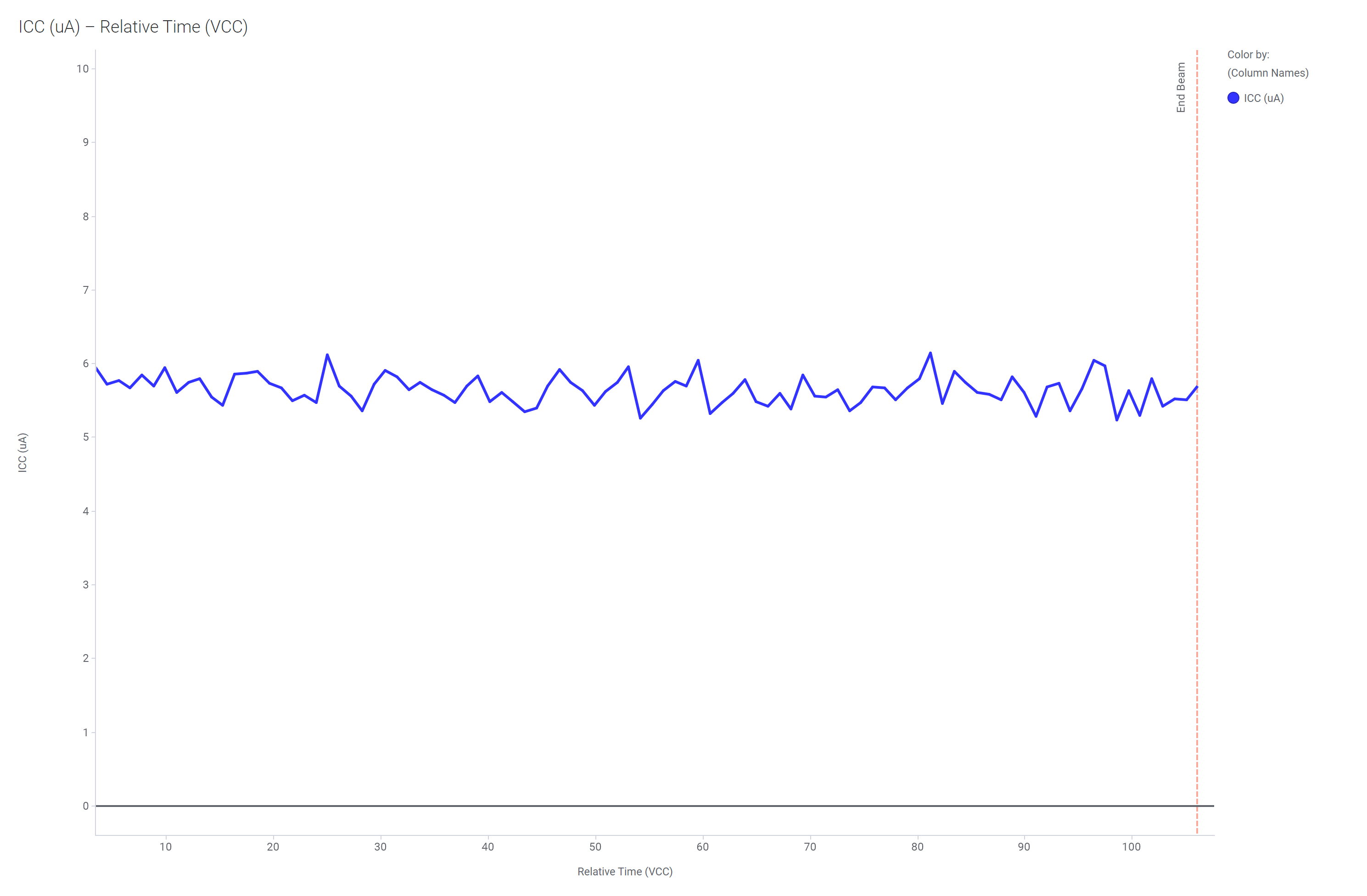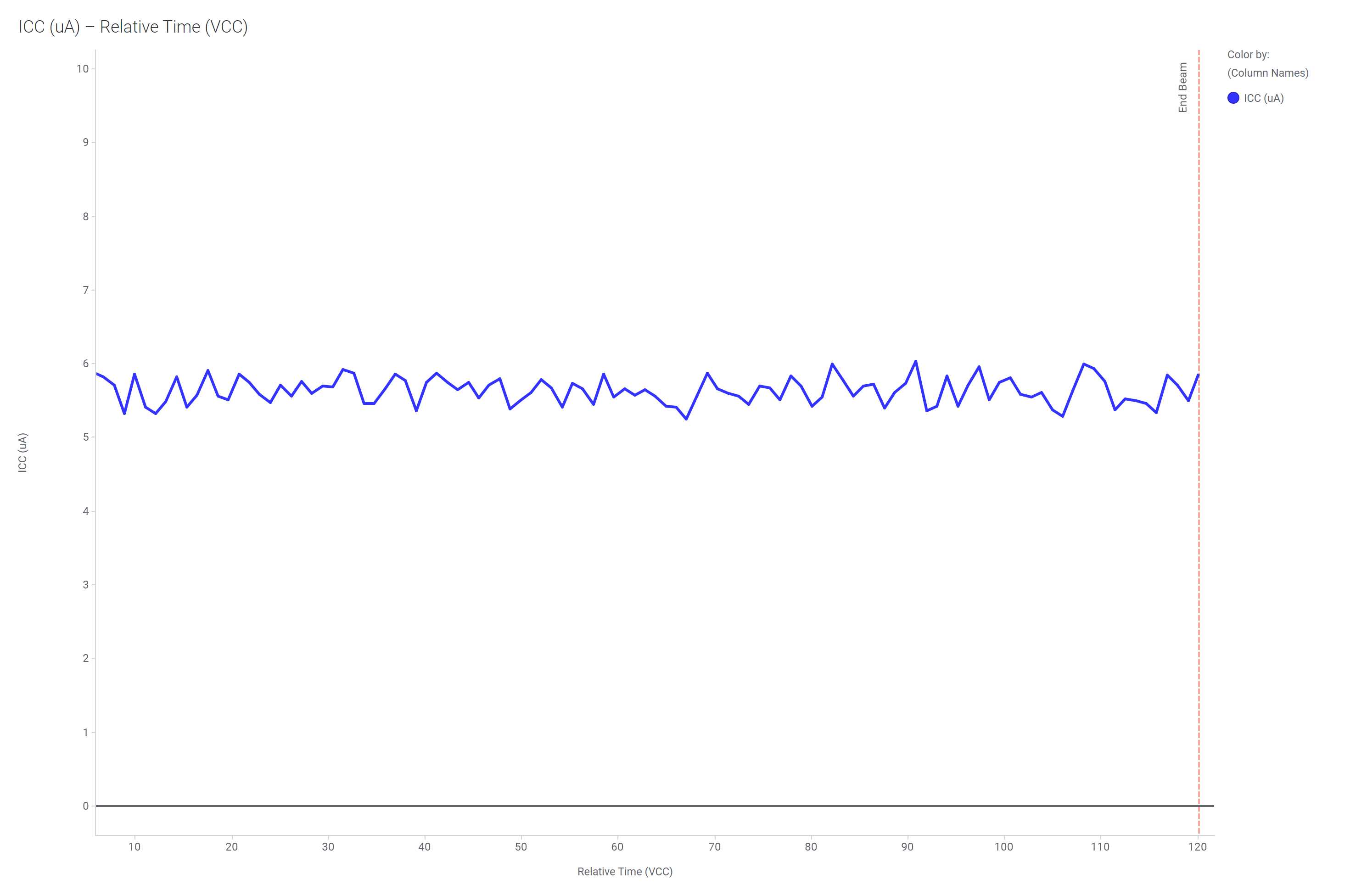SBOK084 December 2023 SN54SC3T97-SEP , SN54SC3T98-SEP , SN54SC4T00-SEP , SN54SC4T02-SEP , SN54SC4T125-SEP , SN54SC4T32-SEP , SN54SC4T86-SEP
PRODUCTION DATA
5.1 SEL Results
During SEL characterization, the device was heated using forced hot air, maintaining IC temperature at 125°C. A FLIR (FLIR ONE Pro LT) thermal camera was used to validate die temperature to make sure that the device was accurately heated (see Figure 3-5). The species used for SEL testing was a Xenon (129Xe) ion at a linac energy of 25 MeV / µ with an angle-of-incidence of 0° for an LETEFF of 43 MeV-cm2 / mg. A fluence of approximately 1 × 107 ions/cm2 were used for the runs.
The three devices were powered up and exposed to the heavy-ions using the maximum recommended supply voltage of 5.5-V using a National Instruments PXI Chassis PXIe-1085. The run duration to achieve this fluence was approximately 2 minutes. As listed in Table 5-1, no SEL events were observed during the nine runs, indicating that the SN54SC4T125-SEP is SEL-free. Figure 5-1, Figure 5-2, and Figure 5-3 show the plot of current versus time for run numbers one, four, and seven, respectively.
| Run Number | Unit Number | Distance (mm) | Temperature (°C) | Ion | Angle | FLUX (ions × cm2 / mg) | Fluence (number of ions) | LETEFF (MeV × cm2/ mg) | Did a SEL event occur? |
|---|---|---|---|---|---|---|---|---|---|
| 1 | 1 | 70 | 123 | Xe | 0° | 1.00E+05 | 1.00E+07 | 43 | No |
| 2 | 1 | 70 | 123 | Xe | 0° | 1.00E+05 | 1.00E+07 | 43 | No |
| 3 | 1 | 70 | 123 | Xe | 0° | 1.00E+05 | 1.00E+07 | 43 | No |
| 4 | 2 | 70 | 123 | Xe | 0° | 1.00E+05 | 1.00E+07 | 43 | No |
| 5 | 2 | 70 | 123 | Xe | 0° | 1.00E+05 | 1.00E+07 | 43 | No |
| 6 | 2 | 70 | 123 | Xe | 0° | 1.00E+05 | 1.00E+07 | 43 | No |
| 7 | 3 | 70 | 122 | Xe | 0° | 1.00E+05 | 1.00E+07 | 43 | No |
| 8 | 3 | 70 | 122 | Xe | 0° | 1.00E+05 | 1.00E+07 | 43 | No |
| 9 | 3 | 70 | 122 | Xe | 0° | 1.00E+05 | 1.00E+07 | 43 | No |
 Figure 5-1 Current versus Time for Run Number 1 of the SN54SC4T125-SEP at T = 125°C
Figure 5-1 Current versus Time for Run Number 1 of the SN54SC4T125-SEP at T = 125°C Figure 5-2 Current versus Time for Run Number 4 of the SN54SC4T125-SEP at T = 125°C
Figure 5-2 Current versus Time for Run Number 4 of the SN54SC4T125-SEP at T = 125°C Figure 5-3 Current versus Time for Run 7 of the SN54SC4T125-SEP at T = 125°C
Figure 5-3 Current versus Time for Run 7 of the SN54SC4T125-SEP at T = 125°CNo SEL events were observed, indicating that the SN54SC4T125-SEP is SEL-immune at LETEFF = 43 MeV-cm2 / mg and T = 125°C. Using the MFTF method shown in Single-Event Effects (SEE) Confidence Interval Calculations, the upper-bound cross-section (using a 95% confidence level) is calculated as: